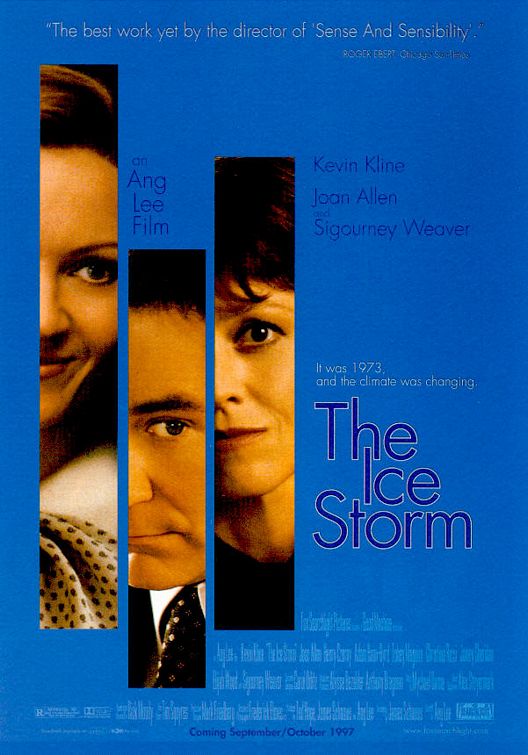“The Sexual Revulsion”

| None | Light | Moderate | Heavy | |
|---|---|---|---|---|
| Language | ||||
| Violence | ||||
| Sex | ||||
| Nudity |
What You Need To Know:
This is definitely a film of great style and skill, combining screenplay, direction and strong performances from all the cast. The movie reflects a well-researched impression of the era, but uses contemporary 90s communicative models to make the story relevant. It is the lack of judgment, the breakdown of morality and sexual experimentation resulting in anguish that makes the story sad and unsettling. Parents become adolescents and adolescents drift without any role models, giving a disturbing and immoral but also truthful look at the beginnings of today’s promiscuous society.
Content:
(Pa, LLL, SSS, NN, A, D, M) Pagan worldview involving immoral sexual activities; 8 vulgarities, 4 obscenities & 8 profanities; adultery, sexual parties, sexual experimentation, sexual references in conversations among young teenagers, implied fondling, implied situation where young couple show each other private parts, young boy & girl in bed, & implied situations of sexual spouse-swapping; implied nudity & man in underwear; alcohol use among young teenagers & adults; smoking; and, miscellaneous immorality with an overriding theme of rampant sexual promiscuity, shoplifting, & negative parent role models
More Detail:
The Hood’s 14-year-old daughter, Wendy (Christina Ricci), and her older brother, Paul (Tobey Maguire ), who has come home from college for the Thanksgiving weekend, are aware of their parents’ difficulties, but are busy themselves exploring their own sexual awakenings. In fact, Mom and Dad Hood are so preoccupied with their own frustrated existence, that Wendy plays doctor with Janey’s two sons, Mikey (Elijah Wood) and little Sandy (Adam Hann-Byrd ), right under her parents’ noses and gets away with it.
Things begin to unravel on this Thanksgiving weekend, during an ice storm, the worst in 30 years. As parents prepare to gather at a party, their children begin to scatter. Ben has a confrontation with Elena, setting the tone for what is to follow for the rest of the evening. An unhappy Elena decides to throw the car keys into a bowl for the “key-party” − just another name for spouse-swapping. As couples being to drift into bedrooms with other people’s spouses, Elena is paired up with Janey’s husband, Jim (Jamey Sheridan). Though they try a little tryst of their own in Jim’s car, they are both uncomfortable and cannot go through with it. Ben, meanwhile, is jealous and drunk, over Janey having another man.
It is the children who finally draw the story to a climax. As Wendy and little Sandy take off their clothes and snuggle into bed, Paul battles with his conscience in a plush New York apartment where his best friend and the girl he likes, lie in a deep sleep induced by drinks and sleeping pills. As Mikey skates, the movie pulls all its characters together into inescapable moments of truth.
This is definitely a polished movie, full of talent. Ang Lee displays even more precision than his earlier success, SENSE AND SENSIBILITY, adapting the nuances and texture of the novel into an amazing piece of cinematic drama. A story of the free-wheeling sexual liberation and early feminism of the 1970s, Ang Lee has wisely invoked the context of that particular era without making the film into a “museum piece…or artifact” of that era. It is not nostalgic at all. The result is a very moving drama that uses the 70s to communicate the results seen in the 90s. Because of this, the movie transcends periods and provides situations which are still relevant today. Through the polyester pants and the art-nouveau geometric homes, Ang Lee’s film reflects a distinctive visual style which is particularly apparent in the portrayal of the ice storm and its deadly aftermath.
While the directing gets a resounding applause, the movie’s final strength must surely be in the total integration of skilled directing, resounding performances from all in the cast and a screenplay that has won the Best Screenplay Award at the 1997 Cannes Film Festival. The singular result is a film that looks at its characters with compassionate reality and views the confusion of old values clashing with an undefined new ethos.
As a cinematic piece, THE ICE STORM is compelling. As a moral piece, it fails dismally. Ang Lee is obviously sympathetic to the portrayal of an era when adults and adolescents cross over into a moral vacuum. There is a tone of sympathy for the film’s lost characters, both adult and children, even as they engage in “liberated” promiscuity.
The families of the story are so detached from one another with their one syllable responses, that even the ice storm which approaches on the eve of that final evening is warmer than the chill of these people towards each other. So distanced that only drinking and sex can rouse them out of their stupor, they are blind to the ways of their sin and cannot foresee the havoc caused by their wrong-doings. Sadly, the movie cannot see it either. Ang Lee has been quoted as saying that”…the period portrayed is innocent and good because people are rebelling against the old rule and the old order.” The old order here is the stronger values of the years preceding the 70s, in particular the values of the 1950s.
Morality has certainly broken down in the film, and the ensuing chaos is not surprising. Even at the end, when the film supposedly wants to give a small ray of hope for the redemption of these people in the story, there is a feeling that it already might be too late. Ben asks for grace to be said before the Thanksgiving meal with his family, but this token redemptive note seems to be more out of an obligation than an inner spirituality and desire to please God.


 - Content:
- Content: 

